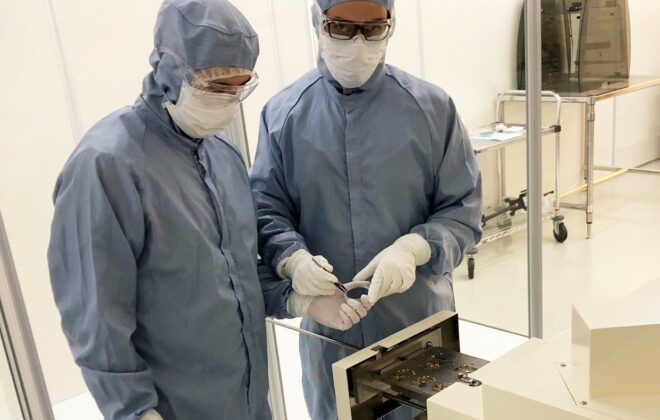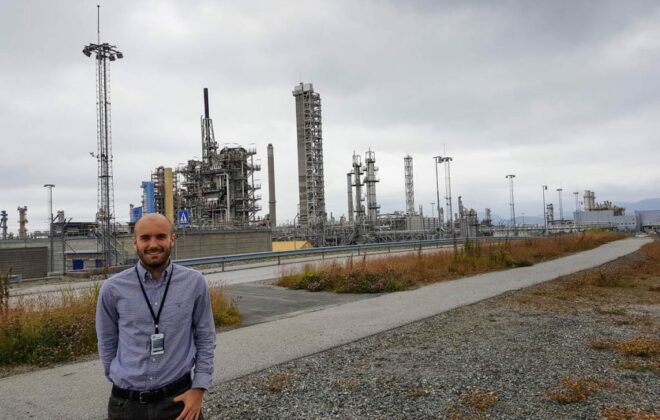Clean energy: Make a difference with other young NTNU researchers

Are you a young researcher working in the field of clean energy? Are you interested in meeting other young researchers from different disciplines working in the clean energy topics? Then you should check out the NTNU Young Researcher Clean Energy Forum, and join the next symposium.
The NTNU Young Researcher Clean Energy Forum focuses on bringing together PhDs and Postdocs at NTNU who are working in the field of clean energy for an annual gathering in the form of a symposium. The topics for the symposium include renewables, Carbon Capture and Storage (CCS), hydrogen production, energy efficiency, digitalization, societal challenges in energy transition and more.
PhDs, Postdocs and researchers at NTNU can submit their abstracts, which are reviewed and selected for the oral presentations during the symposium. This does not only help the concentrated group of young researchers at NTNU to introduce their current research, but also gives them an opportunity to stay updated about other research topics related to clean energy. NTNU Young Researcher Clean Energy Forum was initially proposed by Shareq Nazir, currently a Postdoc at Department of Energy and Process Engineering. The forum was initiated and funded by NTNU Energy.
74 researchers from 16 departments registered for the 2nd symposium
One of the greatest challenges of our time is to provide sustainable and clean energy to a growing population. The energy system must meet long term climate targets under the Paris Agreement and ensure that everyone has access to energy, food and water. At NTNU researchers are working to make the clean energy transition possible, and on 30th of September 2019 researchers at NTNU were gathered to discuss and listen to topics related to clean energy.
The opening was made by Ida Bernhardsen, Post Doc at Department of Chemical Engineering, where she gave a short presentation on the importance of having the Clean Energy Symposium at NTNU. She also spoke about her research within CCS and how it needs broader discussions that can be addressed through these series of symposiums. In total, 74 young researchers at NTNU, spread across 16 departments, registered for the symposium.
Participants by Departments

Participants by research field

Are we able to significantly reduce greenhouse gas emissions?
The keynote talk of the 2nd symposium was held by Olav Bolland, the Dean of the Faculty of Engineering at NTNU, with the title: “Are we able to significantly reduce greenhouse gas emissions?”. He talked about the historical greenhouse gas emissions, future emission scenarios and the current energy use in relation to the Gross Domestic Product (GDP). He also presented the Kaya-equation (1989) containing the factors contributing to increased greenhouse gas emissions. The factors were categorized under energy sources and technology, energy intensity, standard of living, and population.

Following that he discussed the different options to reduce emission of greenhouse gases. He touched upon CCS, fuel switching, improving energy efficiency and renewable technologies. The talk ended with a discussion on where to spend the efforts in reducing the emissions. He made an interesting point, that in addition to develop and implement technological measures, it is important to focus on how to adapt to climate change.
Brainstorming session
After the keynote talk, we had a brainstorming session where people were divided into groups of 4 or more to discuss the following questions:
- Which technology, concept, method or practice would be the torch bearer for the clean energy transition?
- One thing you have either noticed or would like to see at NTNU that can be a representative for clean energy or environment friendly practices?
For the first question, several answers were proposed such as nuclear energy, long term energy storage and MAGLEF technology for future railways. For the second question, the participants seemed to agree that NTNU should work more on promoting public awareness about climate change and greenhouse gas emissions.
From social aspects to biomass conversion
Six presentations were given by PhDs, Postdocs and researchers at NTNU during the 2nd Clean Energy Symposium. The presentations covered a wide spectrum of topics including social aspects of clean energy, ventilation design, electrolysis and biomass conversion. More details of the six presentations can be found at the end of this article.
Welcome to the next Symposium
Now we hope that you feel inspired and want to take part in next year’s symposium. Stay tuned by joining us at our closed facebook group. The 3rd NTNU Young Researcher Clean Energy Symposium is scheduled in late March, 2020. Get in touch with Ida Bernhardsen or Qiaoqiao Wang if you want to contribute to the symposium by being part of the organising committee, submitting abstract or giving us feedbacks. We look forward to seeing you next March.

List of presentations






Blog post originally published on www.ntnutechzone.no on October 28th, 2019

Ida Bernhardsen
Ida Bernhardsen is a postdoctoral researcher at the Department of Chemical Engineering. She has a M.Sc. (2015) and a PhD (2019) in chemical engineering from NTNU. Her main research area is CO2 removal by absorption technology.

Qiaoqiao Wang
Qiaoqiao Wang works at NTNU Energy as China Coordinator. She is also one of the organizers for NTNU Young Researcher Clean Energy Forum.

Shareq Mohd Nazir
Shareq Mohd Nazir works as a Postdoctoral Fellow at the Department of Energy and Process Engineering. His research mainly focuses on techno-economic analysis of clean energy conversion processes. He has been one of the organizers of Clean Energy Symposium.
Search
Søk
Categories
- Arctic Research
- Arkitektur
- Bærekraft
- Bioingeniørfag
- Biologi
- Biology
- Biomedical Laboratory Science
- Biotechnology
- Bioteknologi
- Chemical Engineering
- Chemistry
- Climate
- Computer Science
- Datateknologi
- Digital
- Elektronikk
- Energi
- Energi
- Energy
- Engineering
- Engineering
- Environment
- Food Science
- Forskning
- Fysikk
- Fysikk
- Havbruk
- Informasjonsteknologi
- Informasjonsteknologi
- Ingeniørvitenskap
- Kjemi
- Kjemisk prosessteknologi
- Kjemisk prosessteknologi
- Kreftbehandling
- Kybernetikk
- Marine Technology
- Materialer
- Materials Science
- Materialteknologi
- Matvitenskap
- Meninger
- Miljø
- Min ph.d.
- My PhD
- My PhD
- My postdoc
- Nanotechnology
- Nanoteknologi
- Ocean
- Oil and gas
- Physics
- Research
- Simulering og visualisering
- Spør en forsker
- Studentliv
- Sustainability
- Ukategorisert
- Universitetsliv
- University Life
Kategorier
- Arctic Research
- Arkitektur
- Bærekraft
- Bioingeniørfag
- Biologi
- Biology
- Biomedical Laboratory Science
- Biotechnology
- Bioteknologi
- Chemical Engineering
- Chemistry
- Climate
- Computer Science
- Datateknologi
- Digital
- Elektronikk
- Energi
- Energi
- Energy
- Engineering
- Engineering
- Environment
- Food Science
- Forskning
- Fysikk
- Fysikk
- Havbruk
- Informasjonsteknologi
- Informasjonsteknologi
- Ingeniørvitenskap
- Kjemi
- Kjemisk prosessteknologi
- Kjemisk prosessteknologi
- Kreftbehandling
- Kybernetikk
- Marine Technology
- Materialer
- Materials Science
- Materialteknologi
- Matvitenskap
- Meninger
- Miljø
- Min ph.d.
- My PhD
- My PhD
- My postdoc
- Nanotechnology
- Nanoteknologi
- Ocean
- Oil and gas
- Physics
- Research
- Simulering og visualisering
- Spør en forsker
- Studentliv
- Sustainability
- Ukategorisert
- Universitetsliv
- University Life



